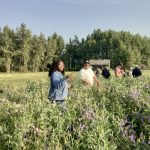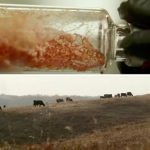
Youth academy to showcase agriculture, forestry and environment
Long-time educator Frank Robinson’s namesake academy will build on his legacy of experiential learning

Building a better canola with broccoli
Traits from related species may punch up canola diversity

Plasma shows promise in grain decontamination
The fourth state of matter (in its cold form) could be coming to a malt house or feedlot near you

Farmers and field trips provide something textbooks can’t offer

Change is coming, but the options are many, say food experts
Forum on the future of food offers interesting takes on what’s coming down the road

The door is open and young women should walk through it
That’s the message of Feed Your Future, an initiative aimed at showcasing ag career opportunities

Lime shows promise for controlling clubroot in canola
The lime works by neutralizing the highly acidic soil preferred by clubroot, reducing the likelihood of spore germination and plant infection
Reading Time: 2 minutes Treating soil with lime could help farmers curtail clubroot infections in canola, new University of Alberta research suggests. Spot-treating soil with the mineral reduced the overall occurrence and severity of the disease by 35 to 91 per cent, growth experiments showed. The finding, published in the Canadian Journal of Plant Pathology, could give farmers an […] Read more
Wheat varieties could move from midge tolerance to midge resistance
Researchers are trying to isolate molecules that appear to transmit resistance to their neighbours

The search is on for the honeybee best suited to Alberta
Do bees born and raised here fare better over winter than their cousins reared in warmer climes?

Canadian researchers crack the case of high-cadmium durum
The recent mapping of durum wheat genome has solved a mystery 30 years in the making — why some varieties are high in cadmium while others are low

